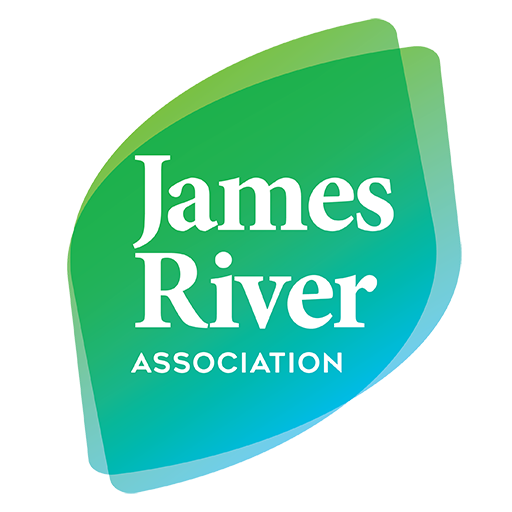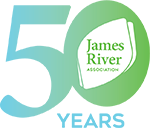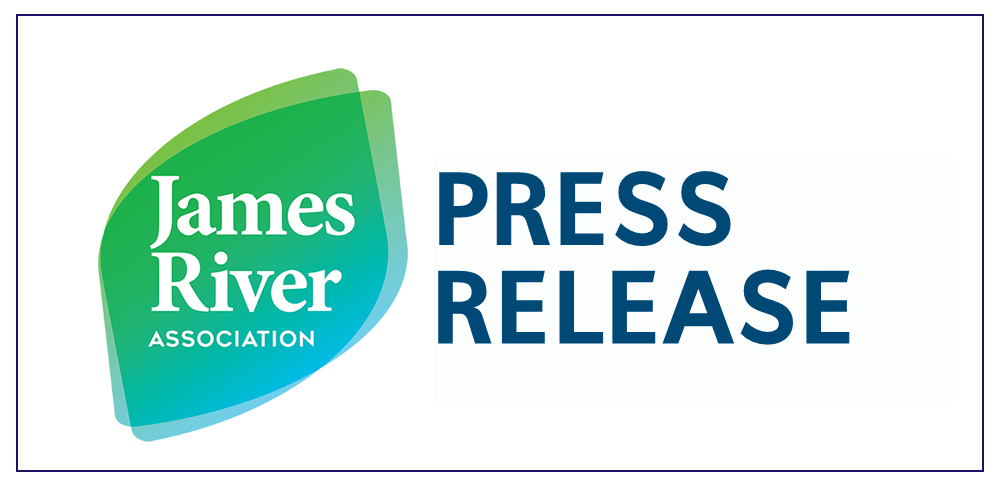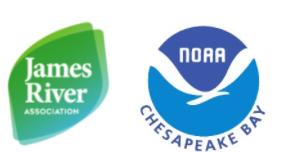Erin Hillert
Marketing & Communications Manager
James River Association
ehillert@thejamesriver.org
608.239.2644
NOAA B-WET Grant Allows the James River Association to
Connect Students with the River in Three Key School Districts
Funding Will Provide Environmental Education for 7th Graders Across the James River Watershed
The James River Association (JRA) is thrilled to be a recipient of a generous grant award from the National Oceanic and Atmospheric Administration (NOAA) Chesapeake Bay Office that will allow the organization to provide environmental education to every 7th grader in the Amherst County, Hopewell City, and Surry County Public School systems.
This grant marks the first time that NOAA B-WET funding will be applied through JRA educational programming collectively in these three school districts, connecting students in the Upper, Middle, and Lower James River watershed. NOAA’s investment will allow JRA to engage approximately 700 7th grade students per year, impacting 2,100 students over the entire three-year course of the program.
“This funding will support three school districts that border our beautiful James River, allowing many students the chance to connect with the river who may not have had the opportunity in the past,” said Nat Draper, Senior Education Manager for the James River Association. “We are so excited to be a partner in bringing hands-on environmental education experiences to these communities, engaging more than 700 7th grade students each year with our waterways and the natural world.”
JRA staff will implement immersive environmental education in each community through systemic Meaningful Watershed Educational Experiences (MWEEs) focused on the question of “How can we protect aquatic ecosystems in the James River and Chesapeake Bay Watershed?” Students and teachers will research locally relevant environmental issues through outdoor field trips as well as in-classroom research, develop an understanding of the connectivity of the three regions, and share gained knowledge through stewardship action projects tied to community engagement.
Students and teachers will also work closely with community partners including the Pedlar River Institute based in Amherst County, Friends of the Lower Appomattox River, and the Historic Southside Chapter of the Virginia Master Naturalists. These partners will lend their expertise to provide local context and shape the issues within each of the communities, as well as provide technical expertise during the community action projects.
JRA will partner with researchers and scientists from the Virginia Commonwealth University Rice Rivers Center and the U.S. Fish and Wildlife Service to provide professional development sessions for teachers. These sessions will equip teachers with the tools and resources to increase their understanding and ability to confidently deliver high quality education on environmental topics and systems, with particular focus on the aquatic species of the James River.
“We are delighted to continue our partnership with the James River Association to support systemic environmental literacy experiences for students and teacher professional development,” said Elise Trelegan, Coordinator of the B-WET Program at the NOAA Chesapeake Bay Office. “JRA has demonstrated a strong commitment to ensuring that every student in the region has the opportunity to explore important environmental issues and graduate with the knowledge and skills to protect their local watershed. We’re excited to see this work expanding to three new school districts in Virginia.”
In the midst of the ongoing pandemic, JRA plans to evaluate and adapt programming as necessary over the next 3 years to ensure opportunities can be safely provided to the maximum extent allowable.
To learn more about educational opportunities provided by JRA, visit thejamesriver.org/students-of-the-james.

ABOUT THE JAMES RIVER ASSOCIATION: The James River Association is a member-supported nonprofit organization founded in 1976 to serve as a guardian and voice for the James River. Throughout the James River’s 10,000-square mile watershed, the James River Association works toward its vision of a fully healthy James River supporting thriving communities. The James River Association believes that “when you change the James, the James changes you”. With offices in Lynchburg, Richmond, Williamsburg, and Scottsville, the James River Association is committed to protecting the James River and connecting people to it. For more information visit www.thejamesriver.org.


